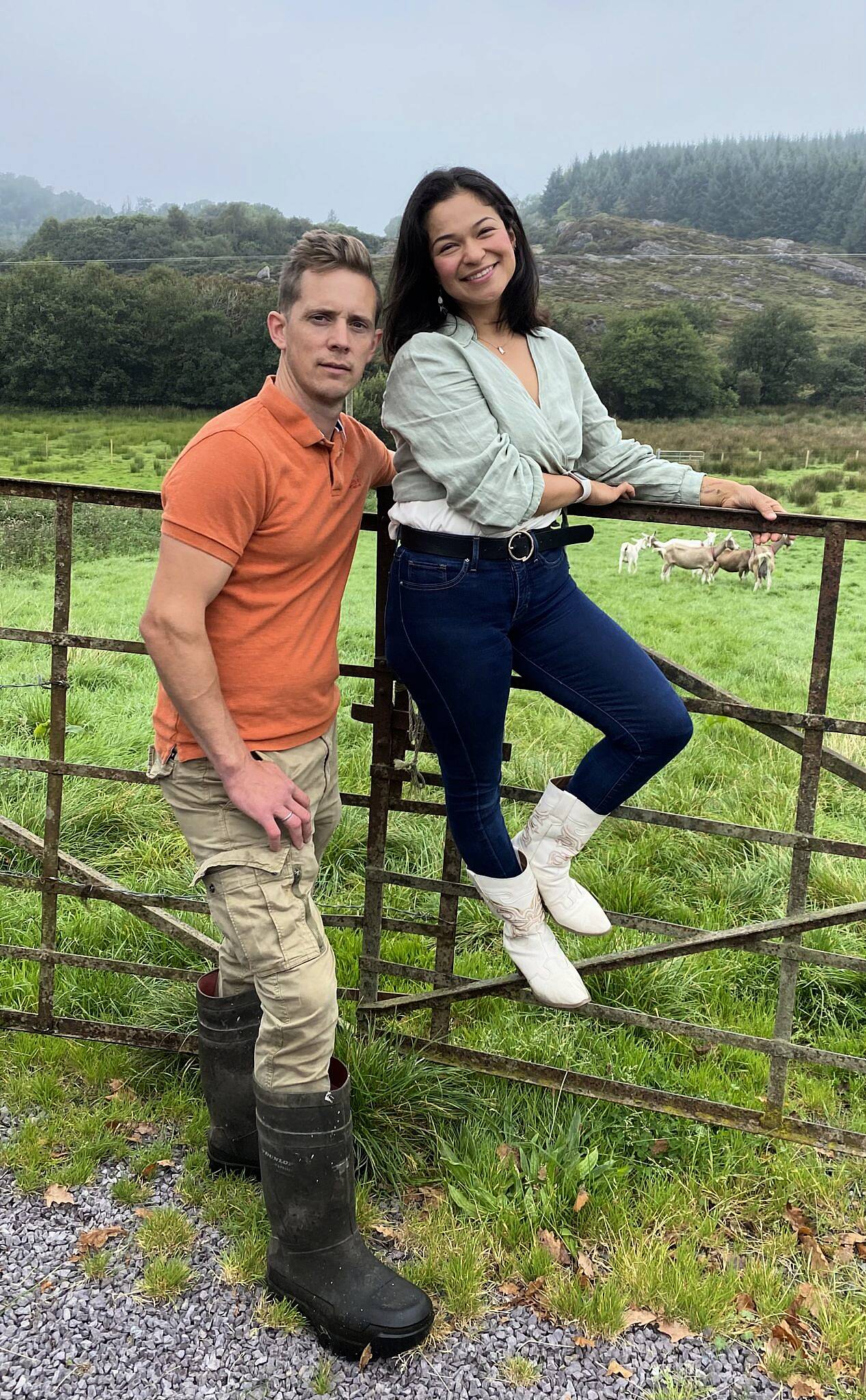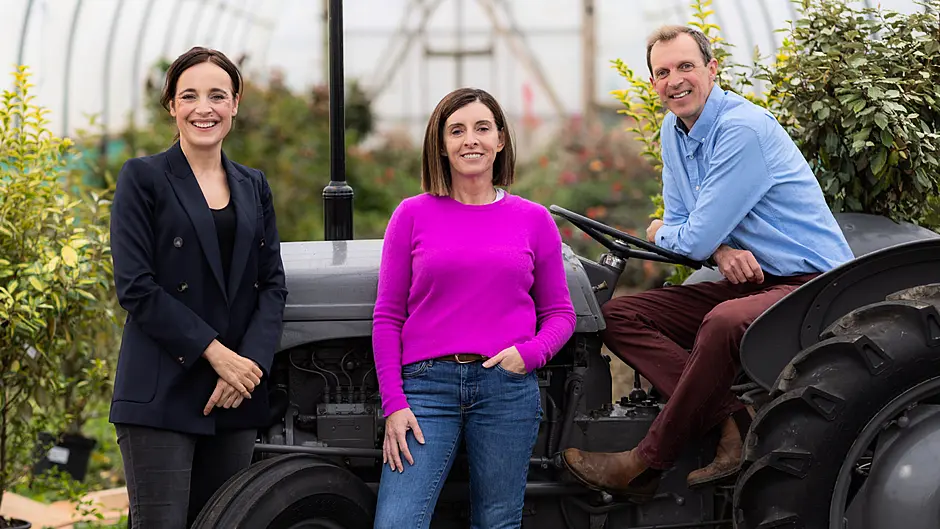The popular TV show returns, with an early focus on Cork, writes CONOR POWER
EAR to the Ground is a programme with an enduring popularity among the farming community and beyond, and it returned to TV screens on Thursday November 2nd for its latest series.
Its roaming reporters always seem to be ploughing fertile soil; finding out what is going on at ground level around the country and talking to some of the personalities behind Ireland’s world-beating agri-food industry. In this 31st season of its existence, they will be covering their usual diverse mixture of subjects and characters and two of their headline episodes feature stories from the Rebel County.
As a measure of just how long the show has been part or Irish life, it’s now almost two decades since former presenter Mairéad McGuinness left to become an MEP (and ultimately, the EU Commissioner for Financial Stability, Financial Services, and the Capital Markets Union).
In Episode One of this season, meanwhile, we catch up with another farmer in County Cork. Dairy farmer Alan Jagoe runs a 300-head dairy farm in Nohoval. His herd is composed mainly of Holstein Friesian cows. A 21st-century farmer who embraces communication via social media videos as readily as his forerunners would have the horse and trap loaded with milk churns, he has recently suffered the news that haunts the dreams of every dairy farmer: that of his cows testing positive for bovine tuberculosis.
On the show, Alan talks of the frustration and trauma of having a positive bovine TB result visit his farm gate for the second time in three years and of having to go through the subsequent culling of part of his herd. The programme also examines the question of why bovine TB continues to rear its head on our farms, in spite of the national bovine TB eradication scheme being in place for decades.
Meanwhile Sonia Viridiana runs a unique vegetable market gardening business from her home in the townland of Coolkelure, 7km west of Dunmanway, amidst a classic West Cork landscape of rolling hills. She moved here in 2012 from Monterrey – Mexico’s second-largest city.
The lightning bolt that caused this particular culture shock came at a wedding Sonia attended in which she was bridesmaid for a close friend.
West Cork plasterer and farmer John Kingston was at the same wedding, in the guise of groomsman for his close friend.
After the initial meeting, they didn’t see each other for eight months, but kept in touch by email and letters.
A distance of over 8,000 kilometres couldn’t keep their hearts apart, it seemed, and two years after their first fateful meeting, John popped the question. The answer was “Yes!” and in 2012, Sonia left Monterrey for Coolkelure and a new life in West Cork.
A qualified engineer, Sonia had worked in a managerial role in her parent’s catering company in Mexico, working alongside many members of her extended family.
Eleven years after first coming to live in Ireland and three children later, she now has her own family and her own business that revolves very much around family life.
Having worked in a coffee shop for a while, she started to look at the farm and what she could do. John’s parents gave her a strip of land to use as a nursery for growing trees and she began to plant it.
Hens folloed and a vegetable patch. The vegetable patch began to flourish, slowly but surely. Her approach, however, was never to conquer the world but to create something that would benefit their lives while at the same time being respectful to the wonderful environment that surrounded them.
These days, the words that best fit the description of that kind of lifestyle/business model is Regenerative Agriculture. It’s about respecting the natural biodiversity of the land; not conquering it and subverting it to your requirements. It’s a rehabilitative approach to farming that focuses on topsoil regeneration, increasing biodiversity, working with and encouraging what the ecosystem offers and improving the water cycle.
 Sonia Viridiana and her husband John Kingston on the farm in Dunmanway.
Sonia Viridiana and her husband John Kingston on the farm in Dunmanway.
Although they started growing commercially in 2020, plans were stalled with the advent of the Lockdown. In 2021, Sonia went back to college in Kinsale, where she enrolled on the Sustainable Horticulture and Permaculture course, run by the Cork College of FET.
An integral part of the course involved establishing a business idea and Sonia came up one of starting a Community Supported Agriculture scheme (or CSA) in her area. The CSA model is one which has its origins in the USA in the 1980s (albeit inspired by the European biodynamic movement). It’s a system that connects producers and consumers by allowing/encouraging consumers to subscribe to the harvest of their local farm or group of farms. Thus, both producer and consumer share in the risks associated with farming.
Sonia was quick to implement her plans, swinging into action immediately after her graduation in May 2022.
The farm has, over just a few years, become a mixed farm of plenty and something that the whole family can be actively involved in – a model of farming that has more in common with how people farmed in the middle of the last century than with the voracious and intensive factory-farms of today. The vegetable production area covers less than a fifth of an acre, between the large polytunnel and one small field. Mexican favourites such as jicama (a Mexican turnip), tomatillos, sweet potatoes and chillies are contented bedfellows alongside the likes of chard, potatoes, beetroot, peas and beans.
Two smaller tunnels act as a nursery and also produce herbs. A small herd of goats produces organic goats’ milk, as well as the occasional animal for cabrito (a Mexican goat meat dish). Chickens, ducks and bees play their part too; as do the pigs, whose rotovating skills win out over their meat-producing qualities. They have planted over 800 trees by hand on the land and the pristine water from their mountain stream is a carefully protected treasure.
With the exception of electricity generation, they have an entirely self-sufficient farm that has become a superb asset to the local community; a real place where, unlike the multitude of online pale imitations, people come to talk to and exchange with one another in a truly meaningful way.










